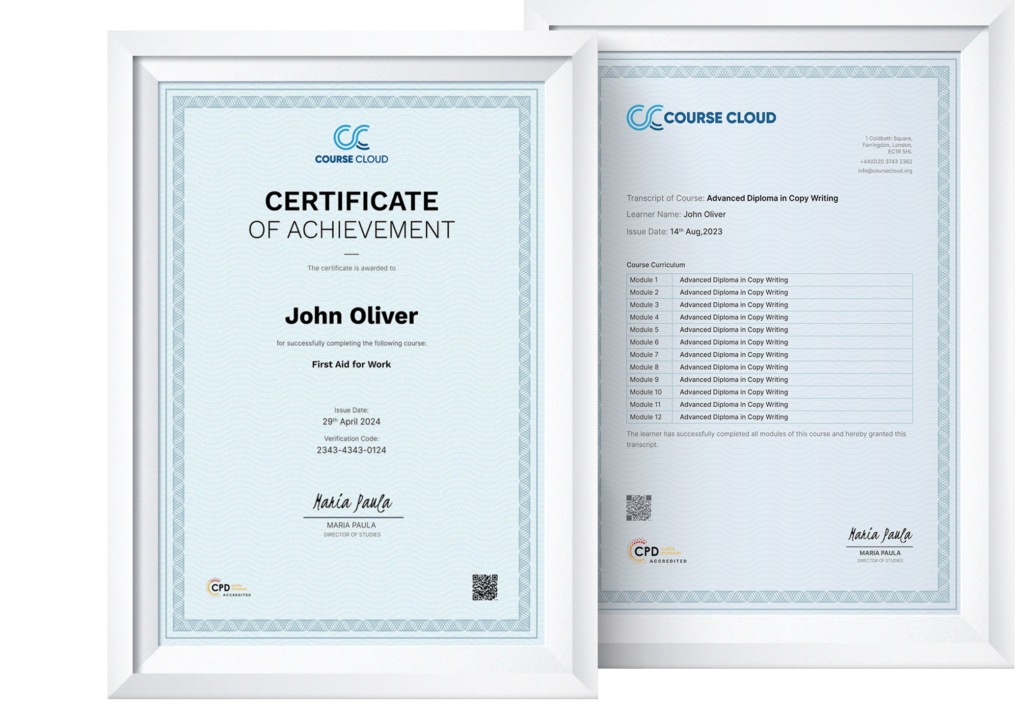Welcome to
Course Cloud
the best place for online learning!
Log In
Sign Up
Don’t have an account yet? Sign Up
Consumer Rights Awareness
Consumers today face a variety of challenges, from unfair contracts to data privacy concerns and fraudulent practices. The Consumer Rights Awareness Course is designed to provide a clear understanding of consumer rights, legal protections, and the steps individuals can take to safeguard themselves in transactions.
1 enrolled on this course
( 50% Off Limited Time )

This Course Includes
- 5 Units
- 1 Year Access
- 1 hour, 44 minutes
- Intermediate
- Accredited Certificate






Frequently asked questions
Can’t find the anwser you’re looking for ? Reach out to customer support team.
Consumer rights refer to the legal protections and entitlements granted to consumers when purchasing goods or services. These rights ensure fair treatment, product safety, accurate information, and access to redress in cases of disputes. Laws such as the Consumer Rights Act and EU Consumer Protection Regulations provide guidelines for businesses and safeguard consumer interests.
The eight fundamental consumer rights include the right to safety, the right to be informed, the right to choose, the right to be heard, the right to satisfaction of basic needs, the right to redress, the right to consumer education, and the right to a healthy environment. These rights collectively empower consumers to make informed decisions and seek remedies when treated unfairly.
The Consumer Rights Act (EU) is a set of regulations designed to protect consumers within the European Union. It covers areas such as unfair contract terms, online shopping protections, refund policies, and guarantees on faulty goods. It ensures that consumers have the right to clear information before purchasing and access to refunds or replacements when needed.
The four basic consumer rights, as defined by former U.S. President John F. Kennedy, include the right to safety, the right to be informed, the right to choose, and the right to be heard. These rights form the foundation of consumer protection laws worldwide.
Basic consumer rights include the right to receive accurate product information before purchasing, the right to a refund for faulty goods, protection against misleading advertisements, and access to customer support in case of disputes. These rights help consumers make informed decisions and ensure accountability from businesses.
All consumer rights are essential, but the right to be informed is often considered the most important. Without accurate and transparent information about products and services, consumers cannot make informed decisions regarding their purchases.
Under EU consumer protection laws, consumers have the right to a full refund if a product is faulty, does not match its description, or is not delivered within the agreed timeframe. For online purchases, EU law provides a 14-day cooling-off period, allowing consumers to return items for a full refund without needing to provide a reason.
Customer rights include the right to receive goods and services that meet expected quality standards, the right to refunds or exchanges for faulty products, protection against unfair contract terms, and access to complaint resolution mechanisms. These rights vary by country but are designed to ensure fair business practices.
EU consumer rights for online purchases include the right to transparent pricing, clear product information, cancellation and refund policies, data protection under GDPR, and dispute resolution options. Consumers are also entitled to return most online purchases within 14 days of receiving them.
Being a wise consumer involves researching products before purchasing, reading reviews, understanding warranty and return policies, comparing prices, and being aware of common frauds or misleading advertisements. Knowledge of consumer rights also helps in making informed and confident purchasing decisions.
Consumer responsibility refers to the ethical and informed behavior of consumers when making purchases. This includes being aware of product details, avoiding fraudulent deals, reporting defective goods, and practicing sustainable consumption by supporting ethical brands.
A consumer is any individual who purchases goods or services for personal use rather than for resale or business purposes. Consumers drive market demand and are protected by consumer rights laws to ensure fair treatment in transactions.
Yes, you are entitled to a refund if a product is faulty, not as described, or does not meet the agreed-upon standard. In many regions, including the UK and EU, online shoppers also have the right to return goods within a 14-day cooling-off period without providing a reason.
Consumer rights are not classified as fundamental human rights but are considered essential for ensuring fair treatment, economic justice, and protection against exploitation. Many consumer protection laws align with broader human rights principles, such as access to essential services and fair business practices.
The main objective of consumer rights is to protect individuals from unfair business practices, ensure product safety, provide accurate information, and offer legal recourse in case of disputes. These rights empower consumers, promote fair competition, and encourage responsible business conduct.



 Get Accredited Certificate
Get Accredited Certificate



 ALL COURSES FOR
£49
ALL COURSES FOR
£49

